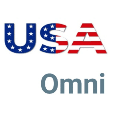Certain foods and drinks like citrus juice, spicy foods, and onions can make you feel heartburn. Heartburn is a common and uncomfortable feeling.
People often say it feels like a painful, burning sensation in their lower chest that moves up toward their mouth. Some people with heartburn also taste something sour in their mouth.
If you get heartburn a lot, you might have noticed that some foods can make it happen or make it worse. In this article, we’ll talk about 10 foods that might cause heartburn and how you can lessen the discomfort.
What is Heartburn?
Heartburn is the most common symptom of a tummy problem called gastroesophageal reflux disease (GERD), which affects almost 28% of adults in the United States. When you have GERD, stuff from your stomach goes back into your food tube and causes issues like:
• Feeling a burning sensation in your chest (that’s heartburn)
• Burping
• Chest pain
• Having a sour taste in your mouth because of stuff coming back up
Usually, stomach acid is supposed to stay in your stomach and not go up into your food tube. There’s a little muscle ring called the lower esophageal sphincter (LES) that keeps it closed. It only opens when you swallow or burp.
Problems with the LES are one reason for GERD, but there are other things that can make it more likely:
• Food moving too slowly out of the stomach
• Something called a hiatal hernia
• Being overweight
• Getting older (over 50)
• Drinking too much alcohol
• Smoking
• Being pregnant
• Having certain body issues
• Taking specific medicines like benzodiazepines, NSAIDs, or antidepressants
To treat GERD and heartburn, people try to manage the symptoms. Changing your lifestyle is the most important part of treatment, but some folks also use medicines.
A group of doctors called the American College of Gastroenterology (ACG) doesn’t say you have to cut out certain foods if you have GERD.
However, lots of healthcare experts suggest that if you have GERD and heartburn, avoiding certain foods might help you feel better. So, here are 10 foods that might give you heartburn.
1. Sodas and Fizzy Drinks
Many people find that they get heartburn after drinking sodas and fizzy drinks. Research suggests that these beverages can relax the esophageal sphincter and make stomach acid more acidic, which are two things that increase the risk of heartburn. In fact, soft drink consumption is a big contributor to nighttime heartburn, also known as nocturnal heartburn. Some studies have found a connection between drinking soft drinks and worse symptoms in people with GERD. For example, an older study found that people who drank fizzy drinks had a 69% higher risk of getting reflux symptoms like heartburn. If you experience heartburn after drinking soda or other fizzy drinks, it’s a good idea to limit how much you have or even cut them out completely.
2. Citrus Juices
Drinking citrus juices, like orange and grapefruit juices, can sometimes trigger heartburn. Many folks say these juices give them GERD symptoms, including heartburn.
We’re not completely sure why citrus juices do this, but a lot of people with GERD steer clear of them to reduce their heartburn symptoms.
3. Chocolate
Chocolate is a common cause of heartburn for many people. It has things like cacao and caffeine that can relax the lower esophageal sphincter (LES), which can let more stomach acid into your food tube. This can lead to heartburn.
Some folks notice heartburn after eating chocolate, and studies have shown that it can lower LES pressure. But it’s not clear if cutting out chocolate from your diet will definitely make your heartburn better. If you find that eating chocolate gives you heartburn or makes it worse, you might want to try not eating it.
4. Spicy Foods
Spicy foods are known for causing heartburn, but we’re not exactly sure why. One study with people who have GERD (the tummy issue) found that eating chili capsules made the upper part of their stomach relax more after a meal. This relaxation can lead to the LES opening up and causing heartburn.
The same study found that people with GERD who took the chili capsules had more intense burning sensations in their belly and worse heartburn compared to those who took a fake treatment.
Spicy foods can also irritate an already inflamed food tube, which can make heartburn symptoms worse. So, if you think spicy foods are causing your heartburn, you might want to try not eating them.
5. Onions
Onions, especially when they’re raw, can trigger heartburn in many people.
Just like the other foods on this list, onions can cause heartburn for those with GERD, but we’re not completely sure why. In a study from the 1990s, people with heartburn ate a plain hamburger one day and the same burger with onions on another day. Eating the onion burger made their heartburn symptoms significantly worse compared to the burger without onions.
But we still need more studies to figure out if everyone with heartburn should avoid or cut down on onions.
Also, onions have something called FODMAPs, which are types of carbs that can cause tummy issues in some people. If you’re sensitive to FODMAPs, they might make your heartburn worse.
6. Alcohol
If you drink alcohol moderately or too much, it can make your GERD symptoms, like heartburn, worse. Alcohol relaxes the lower esophageal sphincter (LES), which can let stomach acid escape into your food tube and cause heartburn. Studies also show that drinking alcohol is a risk factor for GERD. One review of 29 studies found that people who drank alcohol more than 5 times a week were more than twice as likely to have GERD compared to those who didn’t drink or drank alcohol rarely.
7. Coffee and Caffeinated Drinks
Some folks might get heartburn when they drink coffee and other drinks with caffeine. That’s because caffeine can relax the LES, which increases the risk of acid going back up and causing heartburn. Coffee can also make your stomach produce more acid, which can make heartburn worse. While coffee can cause heartburn in some people, not all studies have shown a clear link between coffee and acid reflux symptoms. So, if coffee doesn’t bother you, you don’t have to give it up. But if it gives you heartburn, it’s best to limit or avoid it.
8. Mint
You might think that minty things like peppermint and spearmint can calm your tummy, but some evidence suggests they can actually lead to heartburn. Studies show that peppermint can relax the lower esophageal sphincter (LES), which might cause heartburn.
Now, not everyone with GERD has trouble with mint, but for a small group of people, it can be an issue. If minty stuff makes your heartburn act up, you might want to try cutting it out of your diet to see if it helps.
9. Fatty Foods
Foods with a lot of fat can lead to heartburn, especially the greasy ones like fries and pizza. Scientists are still figuring out how exactly fat causes GERD symptoms, but it seems that high-fat foods can make heartburn worse because they trigger your body to release substances that can irritate your food tube.
These substances include bile salts from your stomach and a hormone called cholecystokinin (CCK) in your bloodstream. These substances might relax the lower esophageal sphincter (LES) and make acid flow back into your food tube.
10. Snacks Before Bedtime
Don’t eat anything for two hours before you go to sleep. Instead, you can have four to five smaller meals during the day instead of two or three big ones.
In simple terms:
Heartburn is a common problem for many people, often linked to GERD. It affects millions worldwide.
Lots of foods can relax the muscle that stops stomach acid from going into the food tube and causing heartburn.
If you often get heartburn, you might want to try cutting some of the foods on this list from your diet to see if it helps.
Keeping a food diary can be useful to figure out which foods give you heartburn.
While avoiding certain foods can help with heartburn, it’s a good idea to work with your healthcare team to create a complete plan to manage your GERD symptoms.


